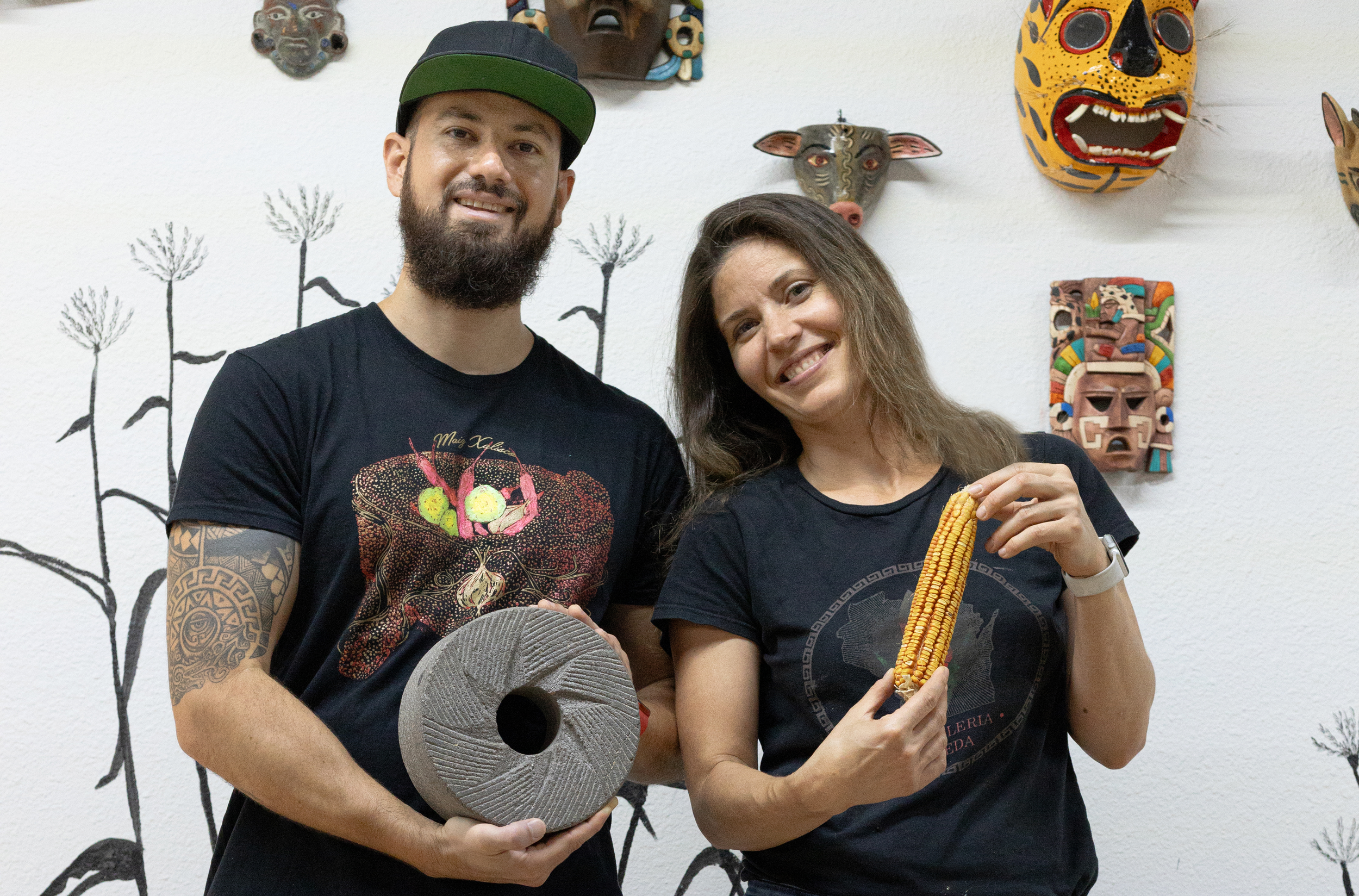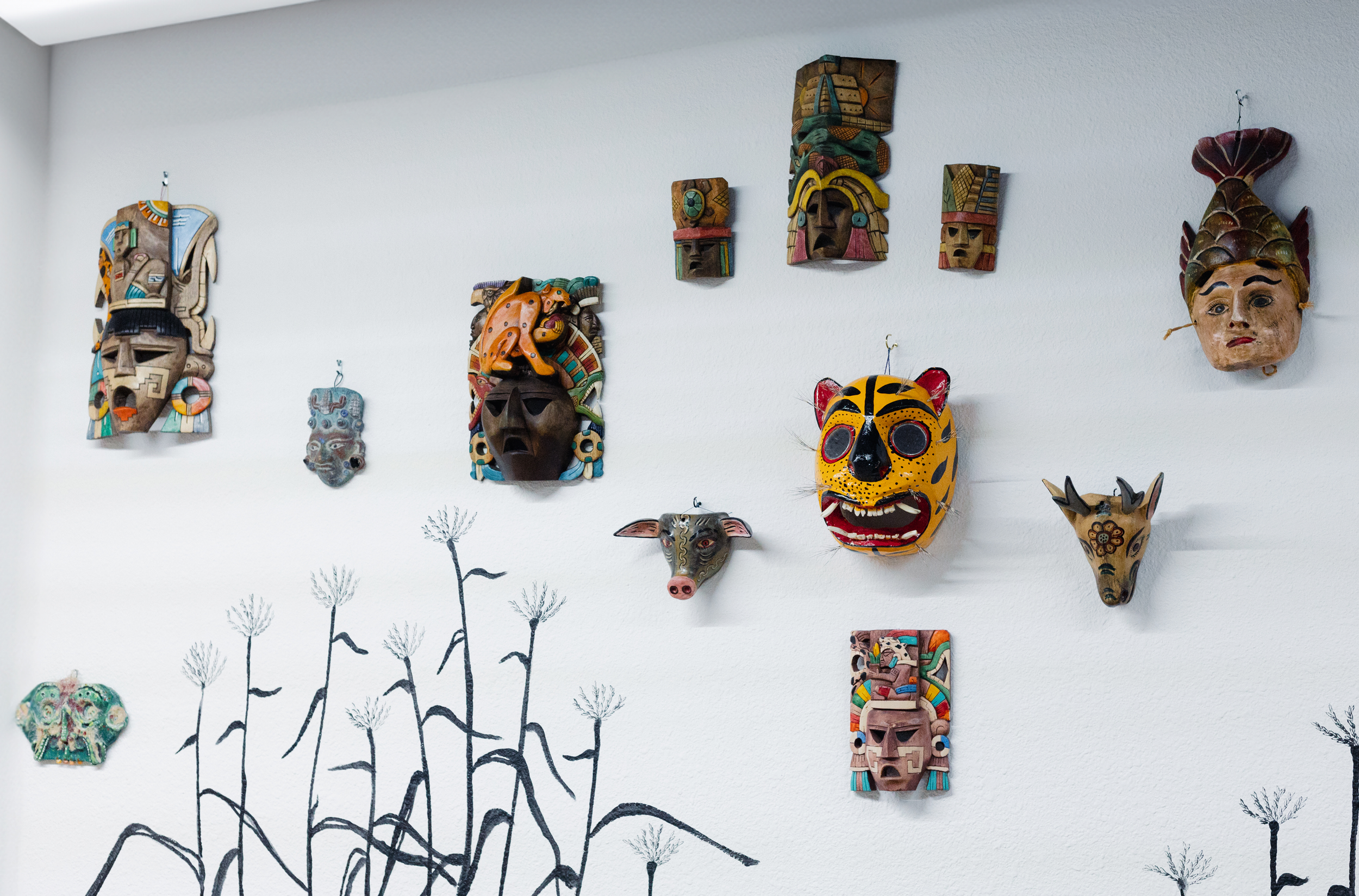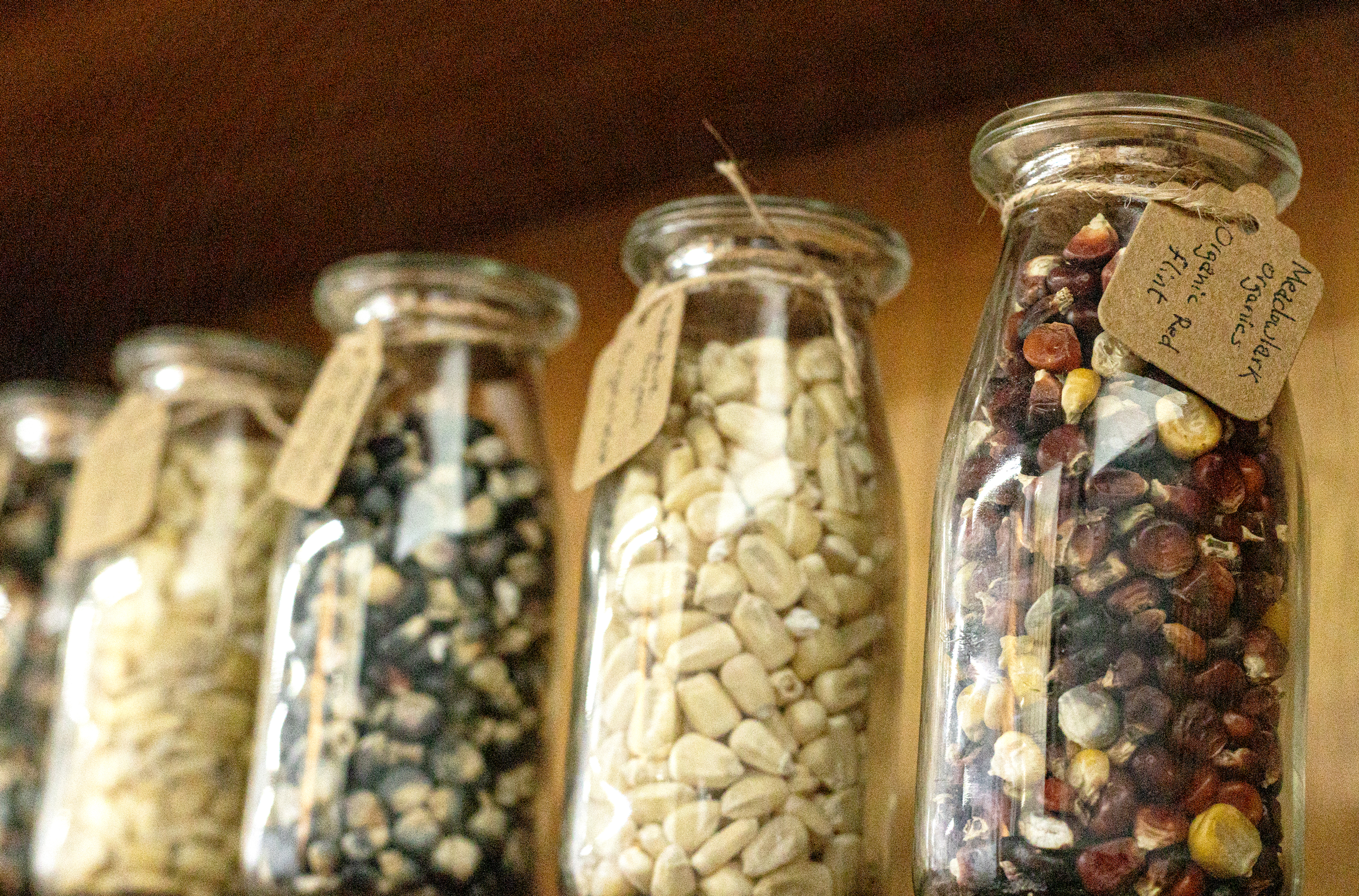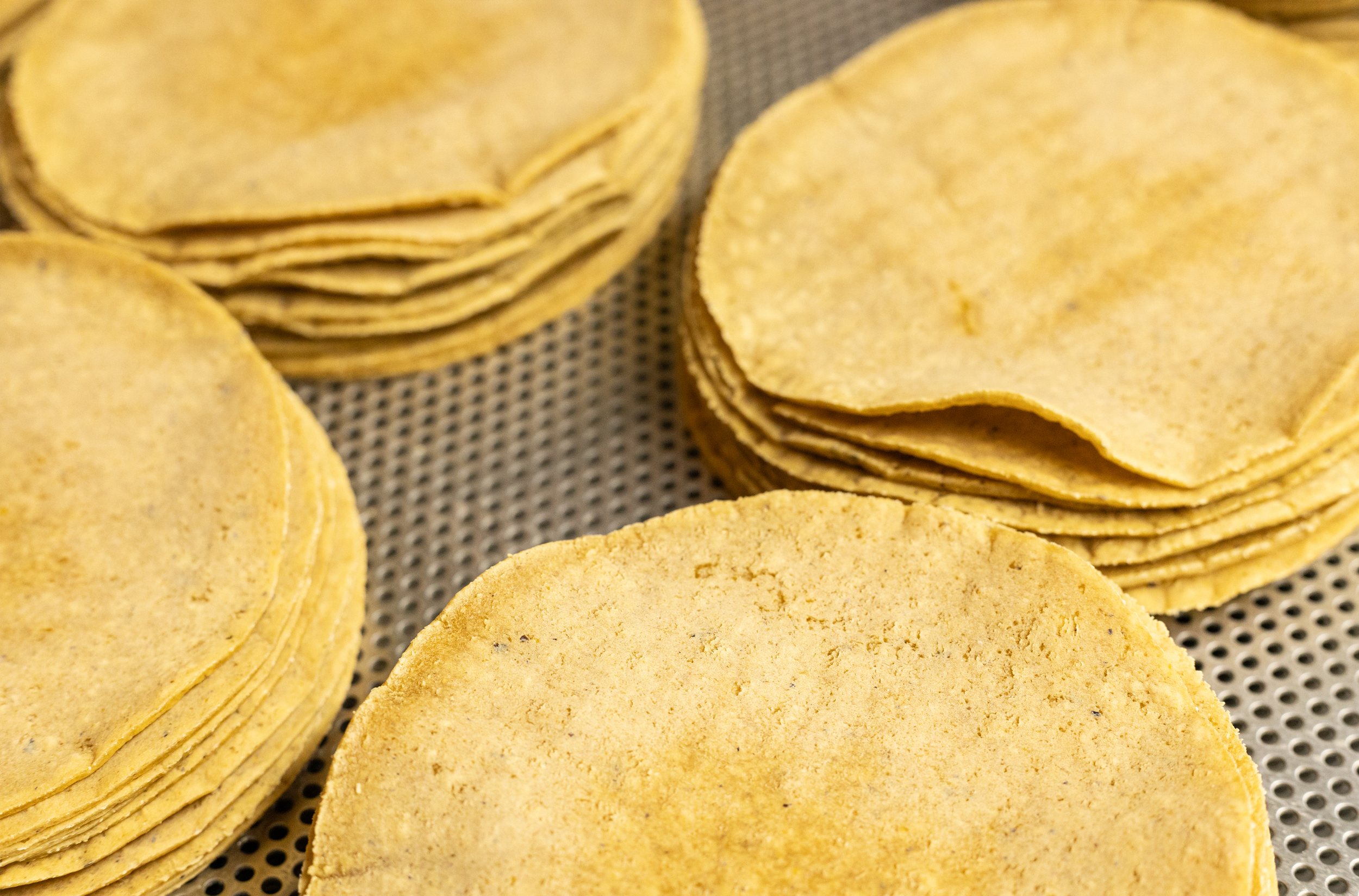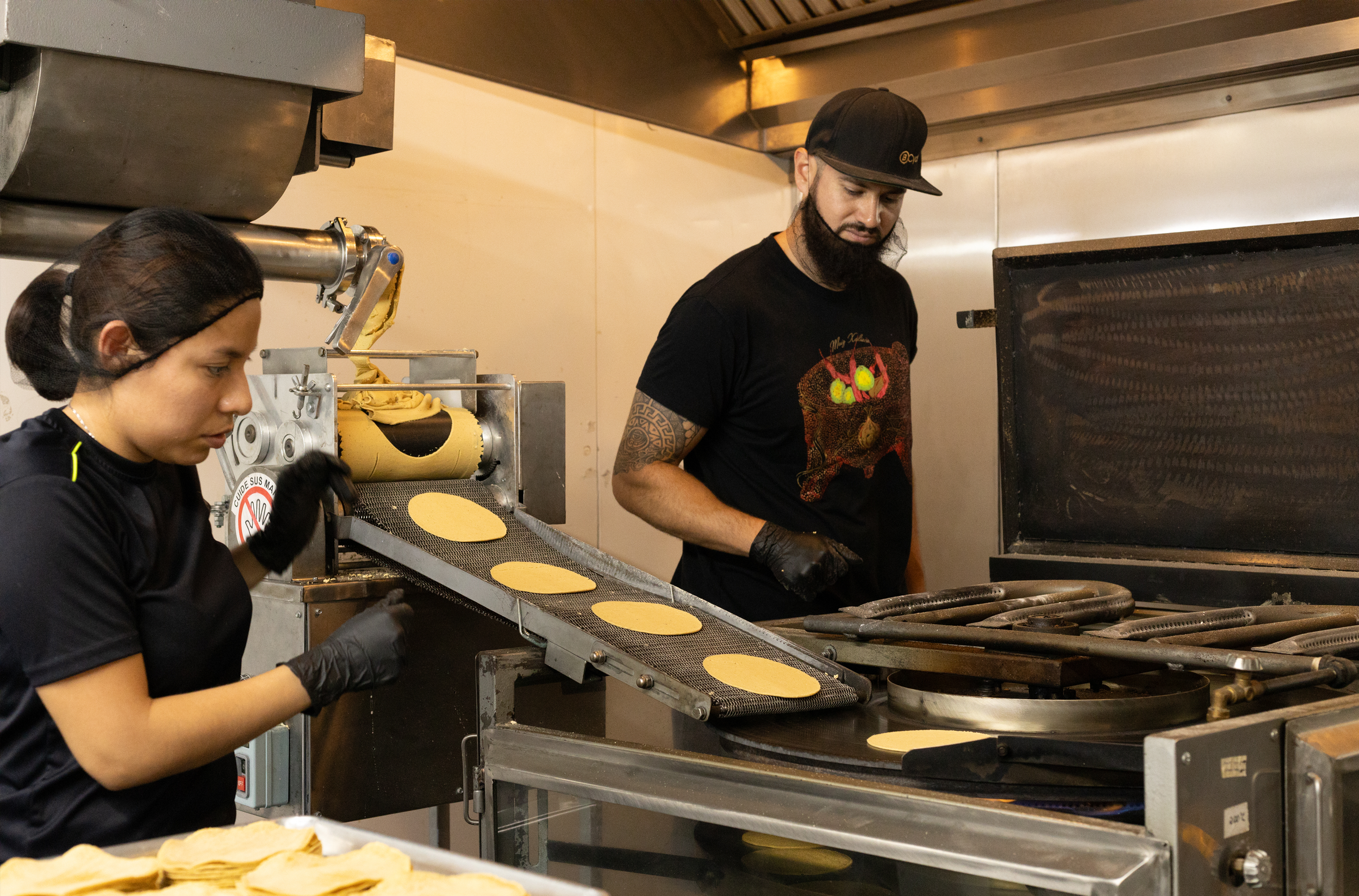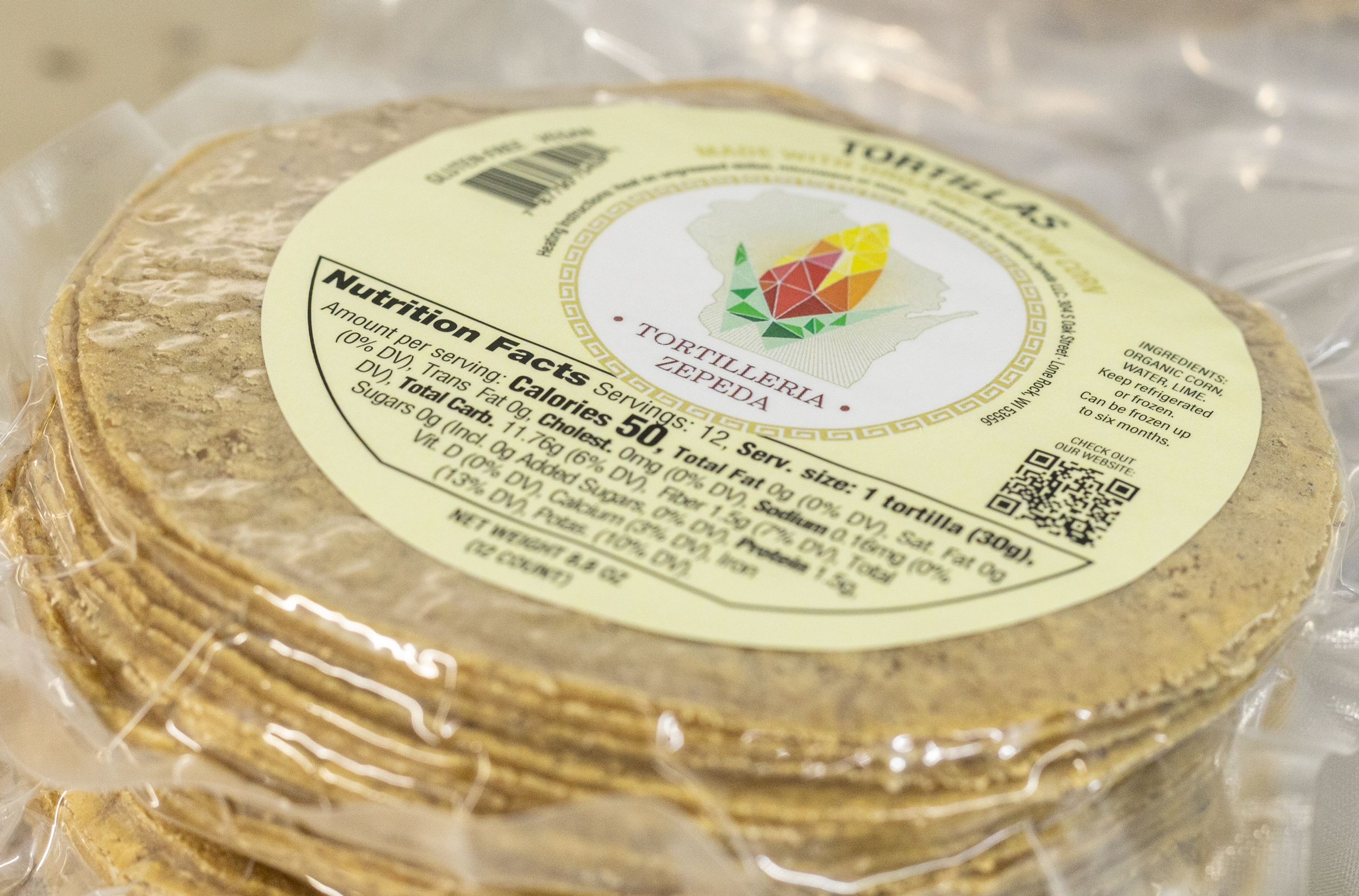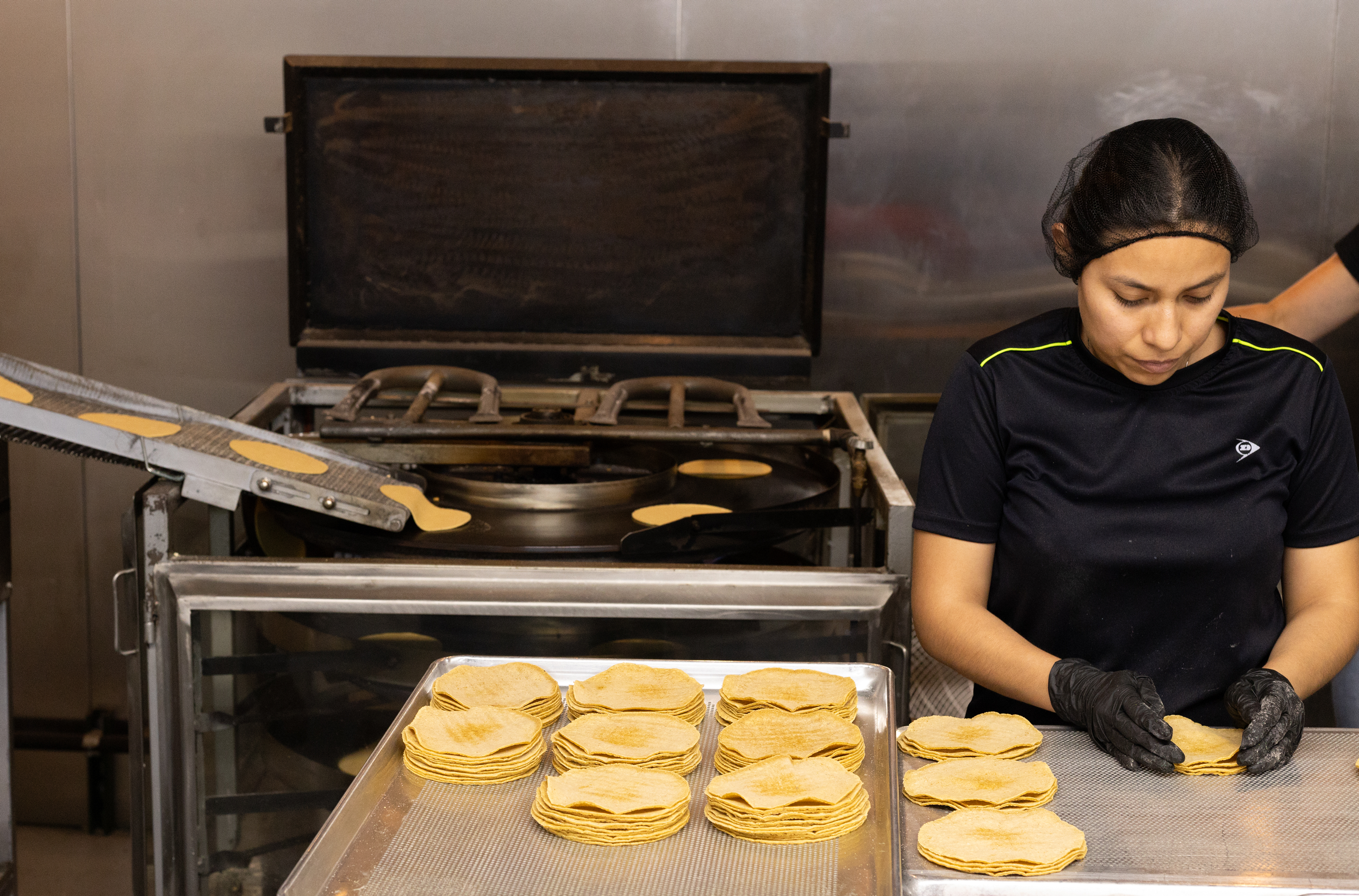Tortilleria Zepeda
Lone Rock, Wisconsin | 51 miles
“In Mexico, corn is sourced locally. To make authentic Mexican tortillas in the States, we had to find a local source for the corn.”
If you haven't tried Tortilleria Zepeda's tortillas, you are in for a real treat. Locally made in Lone Rock, WI, with organic heirloom corn sourced from local Wisconsin farmers, Heidi and Julian Zepeda follow traditional practices to make authentic Mexican tortillas to share with customers.
When Julian Zepeda first moved from Mexico to Madison, WI, with his wife, Heidi, he enjoyed exploring new foods. Before long, he craved food from his homeland, particularly tortillas. Julian tried many kinds of tortillas from stores and Mexican restaurants and found them lacking flavor and consistency. "I didn't understand why the corn tortilla was doubled up in Mexican restaurants until I picked up my entrée, and the tortillas crumbled in my hands," Julian said. A scientist by nature and biologist by training, Julian began to research. He soon discovered that most tortilla brands in the United States are made with widely available GMO corn. In addition, the lengthy but traditional nixtamalization process is often skipped in production, and tortillas are made instead with highly processed corn flour that is mostly carbs and lacks nutrition. He knew there was a better way and committed to learning it.
In Mexico, every neighborhood has at least one tortillería. Tortillas are used like we use bread in the States for everything from creating a sandwich to wiping your plate. When Julian and Heidi returned to Mexico to visit family, they began asking questions and learning from the experts, starting with Julian's grandmother.
The traditional tortilla making process called Nixtamalization has been passed down from generation to generation since pre-Hispanic times. First, the water is brought to near boiling, and removed from the heat. Then dried corn and pickling lime is added to the water and soaked overnight. The chemical reaction with the alkaline solution releases the vitamins in the corn, including niacin which makes corn easier to digest. After it is soaked, the corn is drained and ground into masa using a grinding stone made of volcanic rock and etched by hand. Picador de Piedras (craftsmen) go from town to town to carve the volcanic stone for tortillerías in Mexico. So Julian learned from them to cut the stone himself and became an expert Picador de Piedras.
Once ground, the pliable masa has a consistency like playdough. Then, it's fed into a hopper that feeds the tortilla maker, where the dough is gently stretched and then cut into perfect rounds. Next, the tortillas are cooked and flipped twice. They are pulled from the tortilla maker, hand stacked, and immediately vacuum-packed to preserve their freshness and extend their shelf life. This process results in nutritious tortillas that taste like fresh corn and hold up when filled.
To source corn locally for their tortillas, Heidi, who grew up on a farm near Richland Center, WI, reached out to local farmers to find heirloom varieties of organic corn. She said, “In Mexico, corn is sourced locally. To make authentic Mexican tortillas in the States, we had to find a local source for the corn." They teamed up with Meadowlark Organics from Ridgeway, WI and Heartland Craft Grains from Lodi, WI, to source for heirloom and organic corn varieties perfect for tortilla production. This year, Keewaydin Farms in Viola, WI is also growing a heritage variety of corn just for Tortilleria Zepeda.
Corn is the base of everything in Mexico and is central to Mexican cooking. Julian and Heidi hope that you try their tortillas to experience and enjoy a taste of Mexican culture.
Staff Pick:
“Have you ever gone to a place that reminds you of home? This is how it feels to visit Heidi and Julian. The nixtamal process is nostalgic for me. The senses and feelings are a window into our history. This all comes together when a freshly made tortilla inflates during cooking and a new tortilla is born. Corn is not only the base of the Mexican diet but also part of our traditions, culture and identity. It is exciting to see that the knowledge, flavors, colors and textures that accompanied our ancestors are still alive. The flavor and consistency of Tortilleria Zepeda tortillas are an indulgence for the stomach and the soul. Thank you, Julian and Heidi, for bringing this treasure to Wisconsin. Sus tortillas son un apapacho para el alma y el estómago. Gracias Julian y Heidi por traer este tesoro a Wisconsin.”

